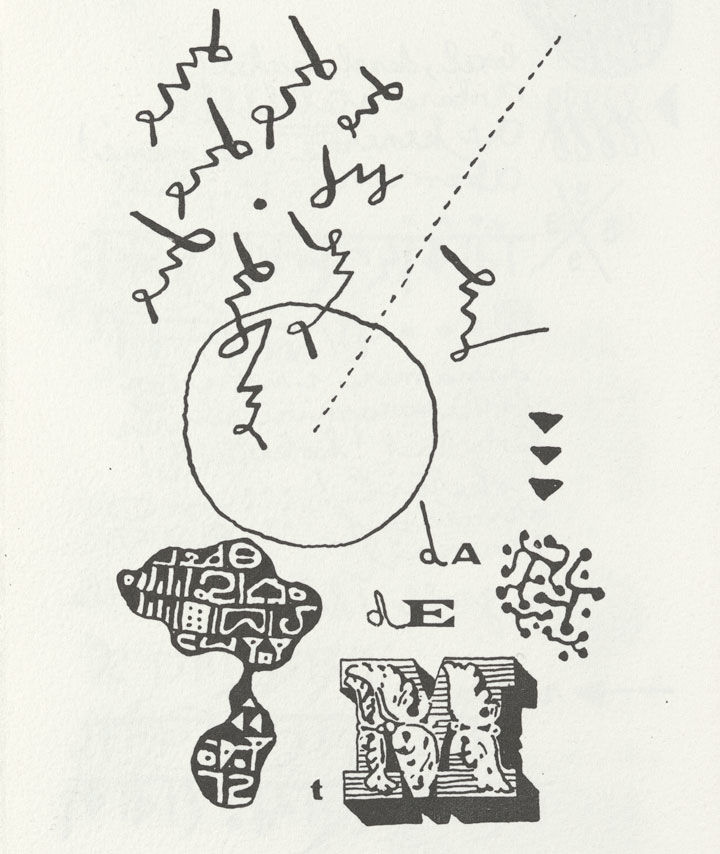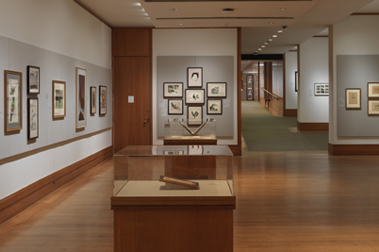In the Evening, Lying on Her Bed, She Reread the Letter from Her Artilleryman at the Front (Le Soir, couchée dans son lit, elle relisait la lettre de son artilleur au front), published in Les Mots en liberté futuristes
Filippo Tommaso Marinetti Italian
Publisher Milano: Edizioni Futuriste di "Poesia"
Not on view
In 1909 Marinetti published "The Manifesto of Futurism," in which he called for a revolutionary art that would reflect the sounds, images, and dynamism of modern life. He soon developed parole in libertà (words-in-freedom), a radical form of writing based on the destruction and reconfiguration of words and sounds. These collage-poems contained dispersed text, fragmented words, onomatopoeias, and distorted letters. This particular work is an example of Marinetti’s tavole parolibere (free-word pictures), in which he mixed innovative typography with imagery to create a kind of visual and aural cacophony. As the woman depicted in silhouette reads a note from “her artilleryman,” fragments of words both real and constructed, and distorted in size, shape, and form, thunder above her, reflecting the sounds of the war as well as the Futurists’ fight against convention.
Due to rights restrictions, this image cannot be enlarged, viewed at full screen, or downloaded.


